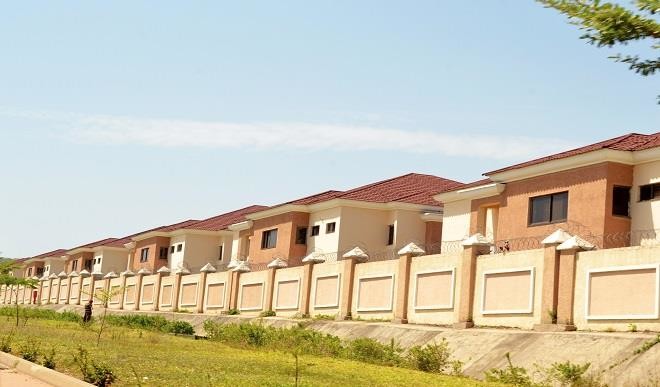Tiny houses aim to help poor become home owners
They may not be mansions or sprawling estates, but they will be “home” nonetheless for dozens of Detroit residents who otherwise may not become homeowners. The first of 25 new tiny homes made its public debut Thursday in a neighborhood on Detroit’s west side, part of a project that aims to transform two blocks into […]


They may not be mansions or sprawling estates, but they will be “home” nonetheless for dozens of Detroit residents who otherwise may not become homeowners.
The first of 25 new tiny homes made its public debut Thursday in a neighborhood on Detroit’s west side, part of a project that aims to transform two blocks into a community for people previously shut out of home ownership.
Cass Community Social Services is spearheading the $1.5-million project to build the small homes over the next couple of years. The Rev. Faith Fowler, the group’s executive director, said the houses will be between 250 and 400 square feet and will be reserved for low-income owners.
The first house is a beige Tudor-style home with a combined kitchen, living room and dining nook looking out the front windows. To the left of the kitchen is an open closet-sized bedroom, and to the right is a comparatively spacious bathroom with a toilet, sink and shower.
From the outside, the house, with a steep brown roof and a decorative stone chimney, looks bigger than it is, but it’s certainly a tiny house – 300 square feet.
Fowler said the homes are designed to give low-income single people, or “couples who really love each other,” the option to buy their own home while rebuilding community in a neighborhood marked by blight and vacant lots.
“This is a program about aspirations,” Fowler said during a news conference. “This isn’t just a housing program. This program is ready for people who are ready,” to be homeowners.
Applicants will be required to show that they are low income under federal guidelines and will be subject to checks of criminal history, rental history, work history and an interview. The homes will be targeted to formerly homeless men and women, seniors, college students, and Cass Community staff members.
Fowler said the program will use a rent-to-own model, with tenants graduating from a lease to a land contract and full ownership after seven years. Most buyers will spend no more than 30 percent of their monthly income on rent and utilities. A 250-square-foot home would cost $250 monthly, a 300-square-foot home, $300 a month, and so on up to $400 for the largest homes.
Fowler said applications will be available beginning Oct. 1 and will be due by the end of the month for the first seven houses, which she said she expects to have built and occupied by October or November. Construction on the second phase is set for spring 2017.
Fowler said building a neighborhood of tiny homes has been a learning experience for her organization and for the city. She said Mayor Mike Duggan’s administration has been supportive of the project, and Tom Lewand, the city’s group executive for jobs and economic growth, also spoke at the news conference.
Cass Community is raising money for the project and so far has brought in $700,000 of its $1.5-million goal. One of the major supporters is the Ford Motor Co. Fund, which donated $400,000.
The Ford Fund’s president, Jim Vella, called the project a “game changer” – not only for people who will move into the homes, but also for the neighborhood and perhaps others elsewhere.
“What it does is provide affordable housing for people who can’t afford something else on their own,” Vella said. “So as the city looks at what it has to do to make neighborhoods viable again, this isn’t the option for every neighborhood, but it could work.”
(mailonline)
